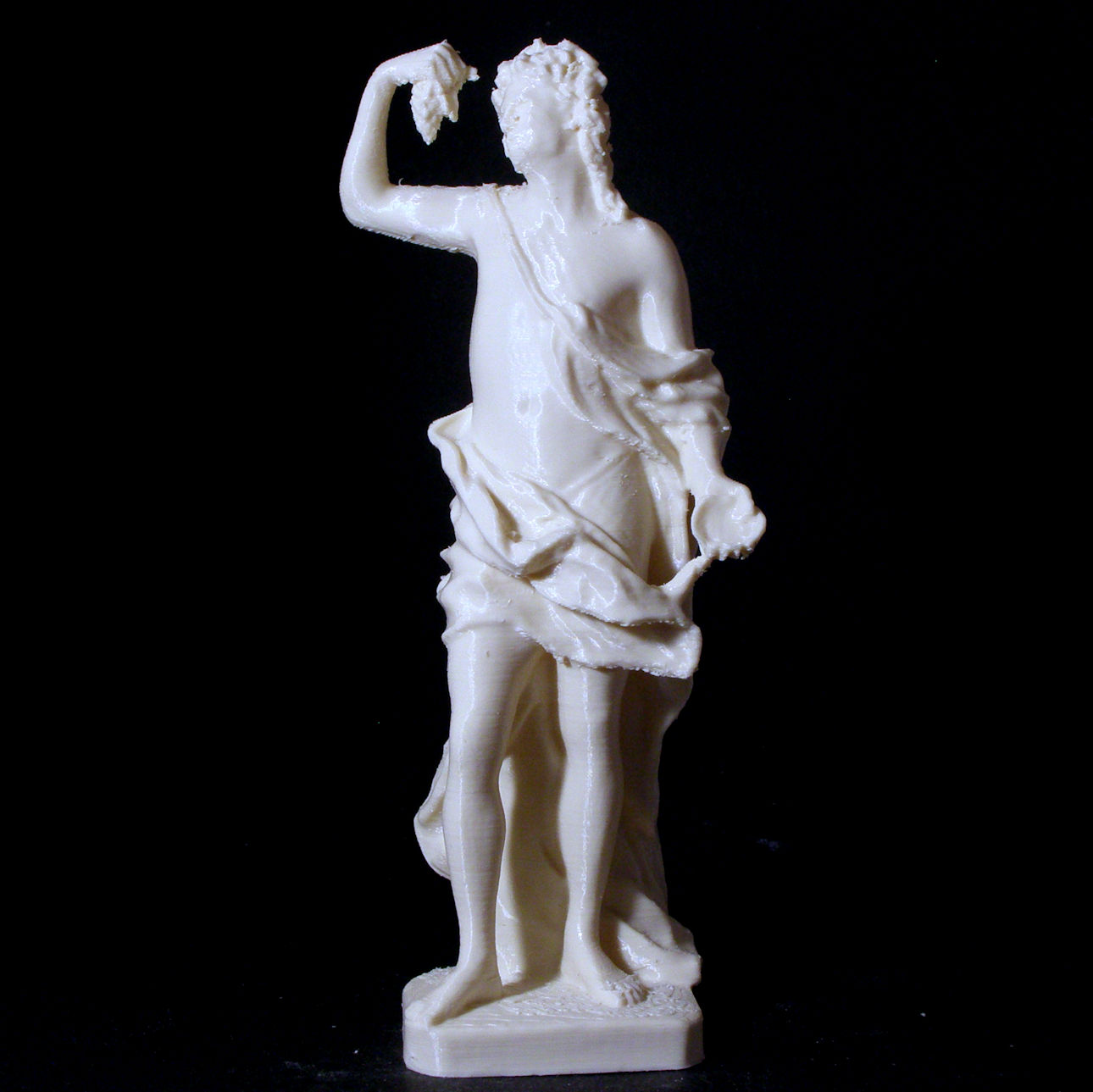
Bacchus
myminifactory
Dionysus is the revered deity of wine production, revelry, fertility theatre, ritual frenzy, and ecstatic worship in ancient Greek mythology. Wine played an integral role in Greek culture with the cult of Dionysus serving as the central focus for uninhibited consumption. His name, believed to be a divine appellation in Linear B tablets, suggests that he may have been worshipped as early as 1500-1100 BC by Mycenaean Greeks; other remnants of the Dionysian-type cult have been discovered in ancient Minoan Crete. The origins of his cults are shrouded in mystery, and they took many forms; some are described by ancient sources as Thracian, others as Greek. In certain cults, he arrives from the east, as an Asiatic foreigner; in others, from Ethiopia in the South. He is a god of epiphany, "the god who comes", and his "foreignness" as an arriving outsider-god may be inherent and essential to his cults. As a major figure in Greek mythology and religion, he becomes increasingly significant over time and is included in some lists of the twelve Olympians. Dionysus was the last deity to be accepted into Mt. Olympus, the youngest and the only one with a mortal mother. His festivals were the driving force behind the development of Greek theatre. He is sometimes categorized as a dying-and-rising god. The earliest cult images of Dionysus depict a mature male, bearded and robed, holding a fennel staff tipped with a pine-cone and known as a thyrsus. Later images show him as a beardless, sensuous, naked or half-naked androgynous youth: the literature describes him as womanly or "man-womanish". In its fully developed form, his central cult imagery shows his triumphant, disorderly arrival or return, as if from some place beyond the borders of the known and civilized. His procession (thiasus) is made up of wild female followers (maenads) and bearded satyrs with erect penises. Some are armed with the thyrsus, some dance or play music. The god himself is drawn in a chariot, usually by exotic beasts such as lions or tigers, and is sometimes attended by a bearded, drunken Silenus. This procession is presumed to be the cult model for the human followers of his Dionysian Mysteries. In his Thracian mysteries, he wears the bassaris or fox-skin, symbolizing a new life. Dionysus is represented by city religions as the protector of those who do not belong to conventional society and thus symbolizes everything which is chaotic, dangerous and unexpected, everything which escapes human reason and which can only be attributed to the unforeseeable action of the gods. Also known as Bacchus, the name adopted by the Romans and the frenzy he induces. His thyrsus is sometimes wound with ivy and dripping with honey. It is a beneficent wand but also a weapon, and can be used to destroy those who oppose his cult and the freedoms he represents. He is also called Eleutherios ("the liberator"), whose wine, music and ecstatic dance frees his followers from self-conscious fear and care, and subverts the oppressive restraints of the powerful. Those who partake of his mysteries are possessed and empowered by the god himself. His cult is also a "cult of the souls"; his maenads feed the dead through blood-offerings, and he acts as a divine communicant between the living and the dead.
With this file you will be able to print Bacchus with your 3D printer. Click on the button and save the file on your computer to work, edit or customize your design. You can also find more 3D designs for printers on Bacchus.
